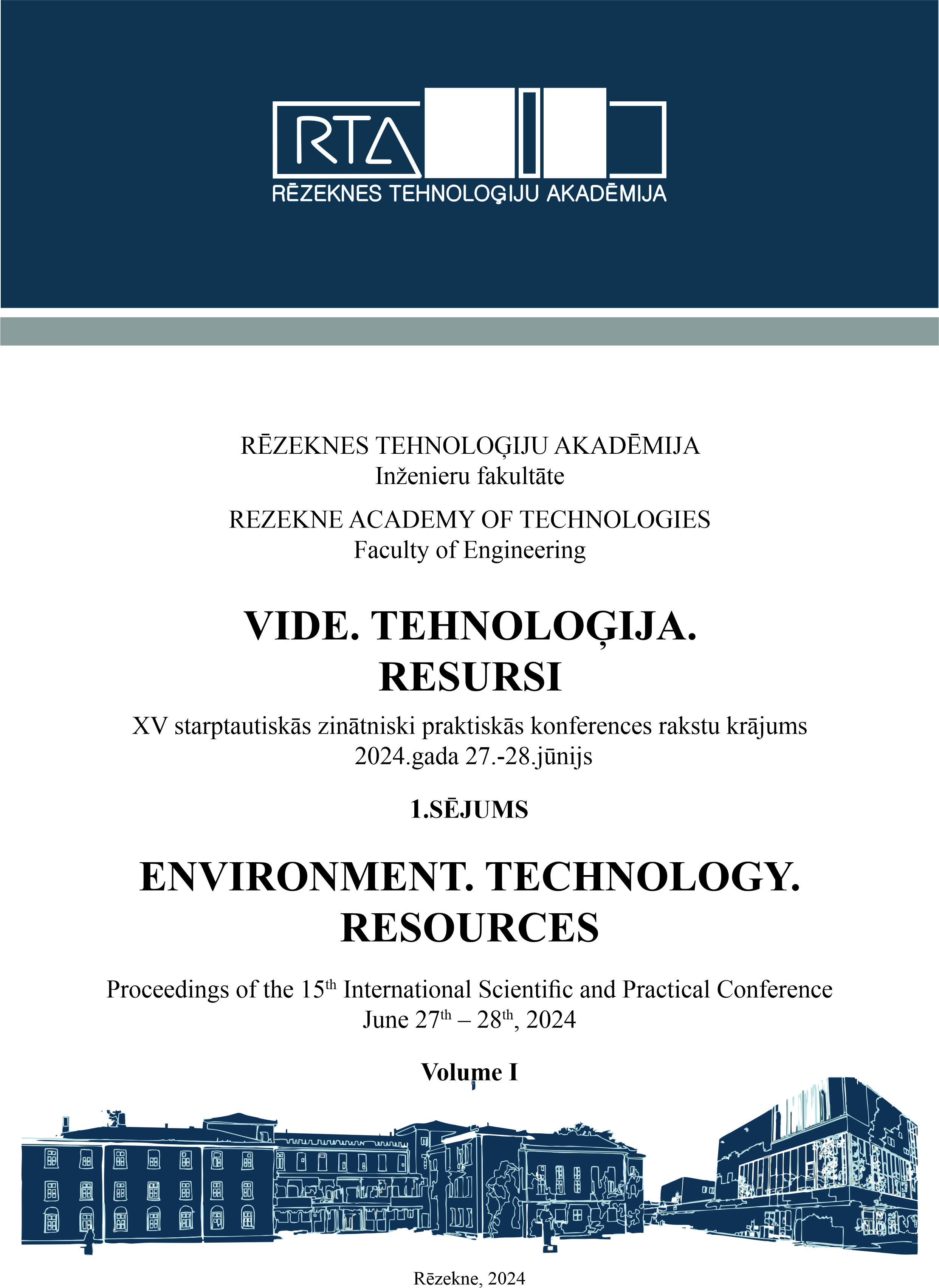URANIUM MINES IN BULGARIA - ANALYSIS OF THE STATE 30 YEARS AFTER THEIR CLOSURE
DOI:
https://doi.org/10.17770/etr2024vol1.8002Keywords:
mines, mining, reclamation, results, samples, uranium, uranium processingAbstract
Uranium mining in Bulgaria dates back to 1939 and was made a historical aspect of uranium mining in Bulgaria until its liquidation in 1992. The measures taken under Decree No. 74 / 27.03.1998 to liquidate the consequences of mining and processing are described of uranium and the omissions to be made. eliminated in this regard. Until the end of uranium mining in 1992, the annual production of uranium was 660-680 t, of which 430 t was obtained by geotechnical method - drilling with sand-type uranium drilling. They are poor in uranium (below 0.05%), but with several times cheaper yields (average $40/kg for 1970-1990). The problems related to the reclamation of lands around uranium deposits and enterprises are shown. The condition of the terrain around the mines and the results of the samples from 2000 and 2010 have been analysed and recommendations for improving the condition and subsequent investigation of the condition of the adjacent terrain have been identified.
References
I.Bozhkov, Uranium deposits in Bulgaria - status and prospects for mining. - Sp. Mining and Geology, 3, 2007, p. 8-11.
D.Dikov, I.Bozhkov, Uranium deposits in Bulgaria - status and potential. Journal of the Bulgarian Geological Society, year 75, vol. 1–3, 2014, pp. 131–137.
N.Dolchinkov, M. Kharalampiev. Influence of uranium mines in the formation of the natural radioactive background, Collection of reports of a scientific conference Current problems of security, V. Tarnovo, 2014, item 3, pp. 51-59.
N.Dolchinkov, Development of uranium mining in Bulgaria. VIII scientific-practical seminar with international participation "Economic security of state and scientific-technological aspects of security", Kyiv, October 21-22, 2016, pp. 180-189
H.Stoykov, I. Bozhkov. Uranium deposits - geology and prospecting. S., Ed. Specter, 1991 p. 148.
Ordinance on the basic norms for radiation protection, ONRZ-2004, SG no. 73, 2004.
PMS No. No. 3/ 15.01.2014 for the distribution of funds under programs for technical liquidation and conservation of objects from the mining industry for 2014.
N.Dolchinkov, Characteristics of radiation and sources of radiation as a result of human activity. International scientific journal: Industry 4.0 Issue 6, 2/2017, December 2017, pp. 279-283.
N. Dolchinkov, Sources of natural background radiation. Security and Defence, №3 (16) 2017 War Studies University, Warsaw, Poland, pp. 40-51.
V.Vasilev, D. Stefanova, C. Popescu, Human capital management and digitalization-From good practices and traditions to sustainable development; Book Chapter: Digitalization, Sustainable Development, and Industry 5.0: An Organizational Model for Twin Transitions, 2023, pp. 41–65; https://doi.org/10.1108/978-1-83753-190-520231004
N.Dolchinkovm, M.Haralampiev, Main characteristics of the radiation from domestic earth. International scientific journal: Science. Business. Society 3/2017, June 2017, pp. 118-120.
N.Dolchinkov, Results and Analysis of Achieved Joint Research and Activities Between Rezekne Academy of Technology and Vasil Levski National Military University, 14th International Scienfic and Practical conference Environment. Technology. Resources. Vide. Tehnologija. Resursi, 2023, ISSN 1691-5402, 3, pp. 90–93
N.Dolchinkov, Karaivanova-Dolchinkova, B.E., Impact of Types of Electromagnetic Radiation on Living Nature, 14th International Scienfic and Practical conference Environment. Technology. Resources. Vide. Tehnologija. Resursi, 2023, ISSN 1691-5402, 1, pp. 55–59
N.Dolchinkov, Optimizing energy efficiency in the conditions of a global energy crisis, Optimizing Energy Efficiency During a Global Energy Crisis, 2023, ISBN13: 9798369304006 EISBN13: 9798369304013, DOI: 10.4018/979-8-3693-0400-6 pp. 1–9
D.N.Todorov, State of the population disclosure systems in the changing radiation situation in Bulgaria, Vide. Tehnologija. Resursi - Environment, Technology, Resources, 2019, 1, pp. 54–58
N.Padarev, Chemical, biologycal, radiologycal and nuclear threats in the hybrid war context, Science. Business. Society. Vol. 4 Issue 3 (2019), ISSN PRINT 2367-8380. Sofia. 2019. pp.118-119
N.Padarev, Radiological threats to the security environment, Security and future, ISSUE 4/2018, Sofia, 2018, pp 173-176, pub. Scientific technical union of mechanical engineering – Industry 4.0 Bulgaria, ISSN PRINT 2535-0668
B.Dimitrov, Challenges to the decontamination of radiological substances, Collection of reports from the annual university scientific conference of Vasil Levski National University, 28-29.05.2020 V. Tarnovo, ISBN 1314-1937, item 3, pages 80-89
S. Vambol, V. Vambol, V. Sobyna, V. Koloskov, Liubov Poberezhna, Investigation of the energy efficiency of waste utilization technology, with considering the use of low-temperature separation of the resulting gas mixtures, ENERGETIKA. 2018. T. 64. Nr. 4. P. 186–195, © Lietuvos mokslų akademija, 2019
R.Marinov, S. Stoykov, P. Marinov, Urbanized territories non-existing part of crisis response operations, International Conference on Creative Business for Smart and Sustainable Growth, CreBUS 2019, 2019, 8840084
Downloads
Published
Issue
Section
License
Copyright (c) 2024 Nikolay Dolchinkov, Antonova Boyanova, Nikolay Nichev

This work is licensed under a Creative Commons Attribution 4.0 International License.



